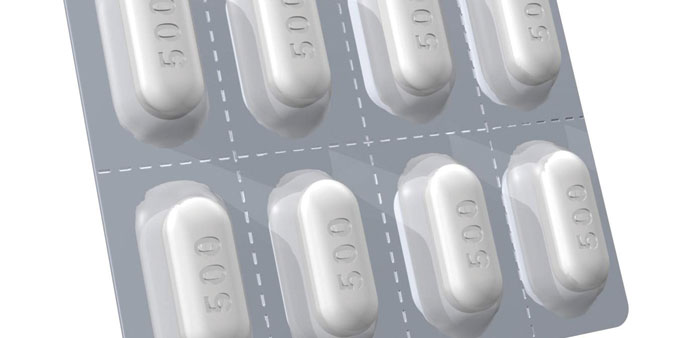By Dr Luisa Dillner/London
Paracetamol is the world’s favourite analgesic – the first choice for any painful condition. It is even the syrup of choice for feverish toddlers because it brings down temperatures. So can it be true, as a report published in the Annals of Rheumatic Diseases suggests, that taking high doses for long periods can increase the risk of heart attacks or strokes?
The authors systematically reviewed 1,888 studies and found eight that fitted their criteria for analysis. These all looked at the effect on adults of taking standard doses of paracetamol (0.5g-1g, to a maximum of 4g a day) compared with not taking the medicine. One study of female nurses in the US who were taking 15 paracetamol tablets a week found a 68% increase in heart attacks. So should we be more wary of paracetamol?
The studies were diverse – covering different countries and subjects with and without chronic conditions. You can’t know if all the factors that could have biased the results have been taken into account. Some people on regular paracetamol might have also had medical conditions that increased their risk of heart attacks and strokes.
The authors say more research is needed. Since their trawl through the research yielded few relevant studies of paracetamol safety, it may be well be true. But paracetamol taken as it says on the packet is likely to be safe; what we do know for sure is that a few extra can be dangerous.
Paracetamol is also the drug of choice for intentional overdose, which is extra tragic as it is good at killing you – it causes the death from liver failure of between 90 and 150 people a year. The liver breaks down paracetamol, but if the usual pathway is overloaded, another pathway takes over that produces a toxic substance. The body has a chemical that can neutralise this substance, but when that is exhausted, the breakdown products of paracetamol start destroying the liver.
Paracetamol overdose is the commonest cause of acute liver failure (a rare condition). The liver can be damaged by 150mg/kg of paracetamol taken within 24 hours and even by 75mg/kg.
Paracetamol overdoses don’t make people feel sleepy and they may feel well for 24 hours – enough time to regret taking too many tablets in the first place. Acetylcysteine (given in hospital) usually works in controlling the damage, if given in the first eight hours. So, more important than waiting for studies that bottom out the long-term effects of paracetamol, are the well-known acute risks of taking more than it says on the packet. So please do not do it. - Guardian News and Media
♦ Dr Luisa Dillner, a writer and doctor, heads BMJ Group Research and Development

